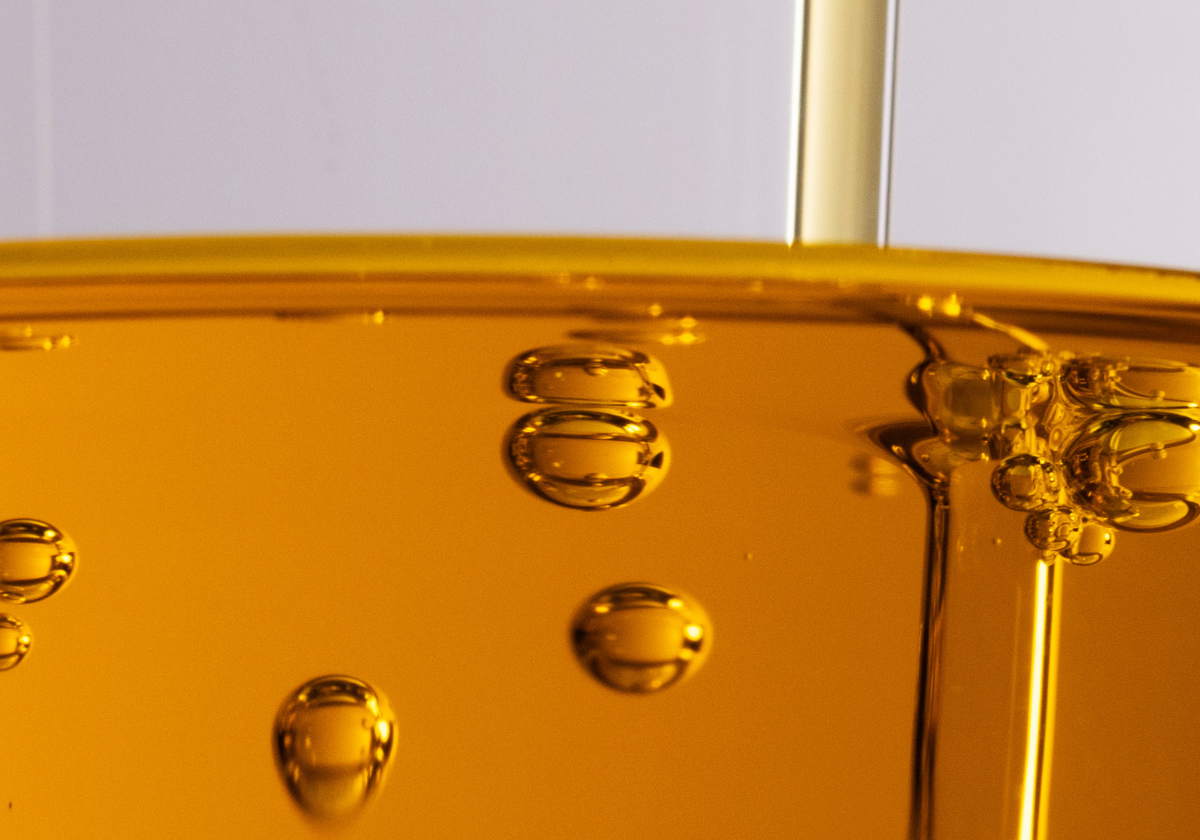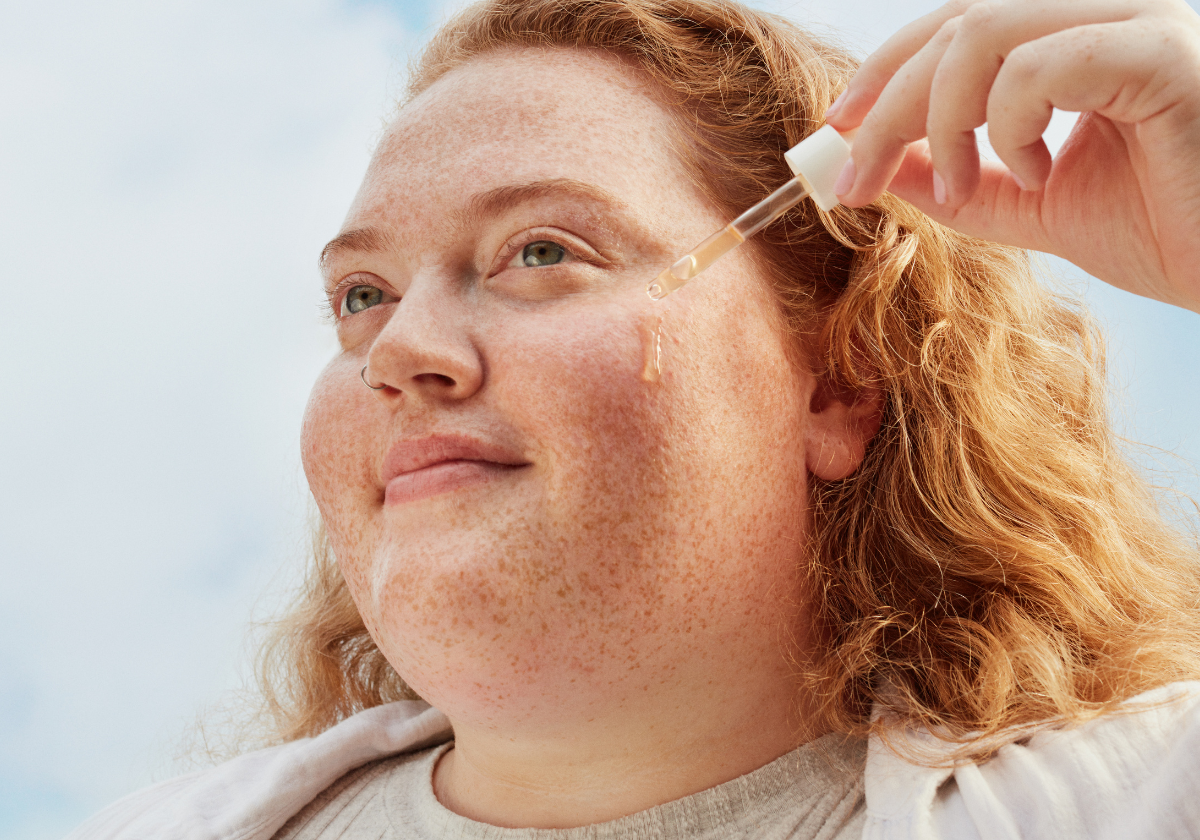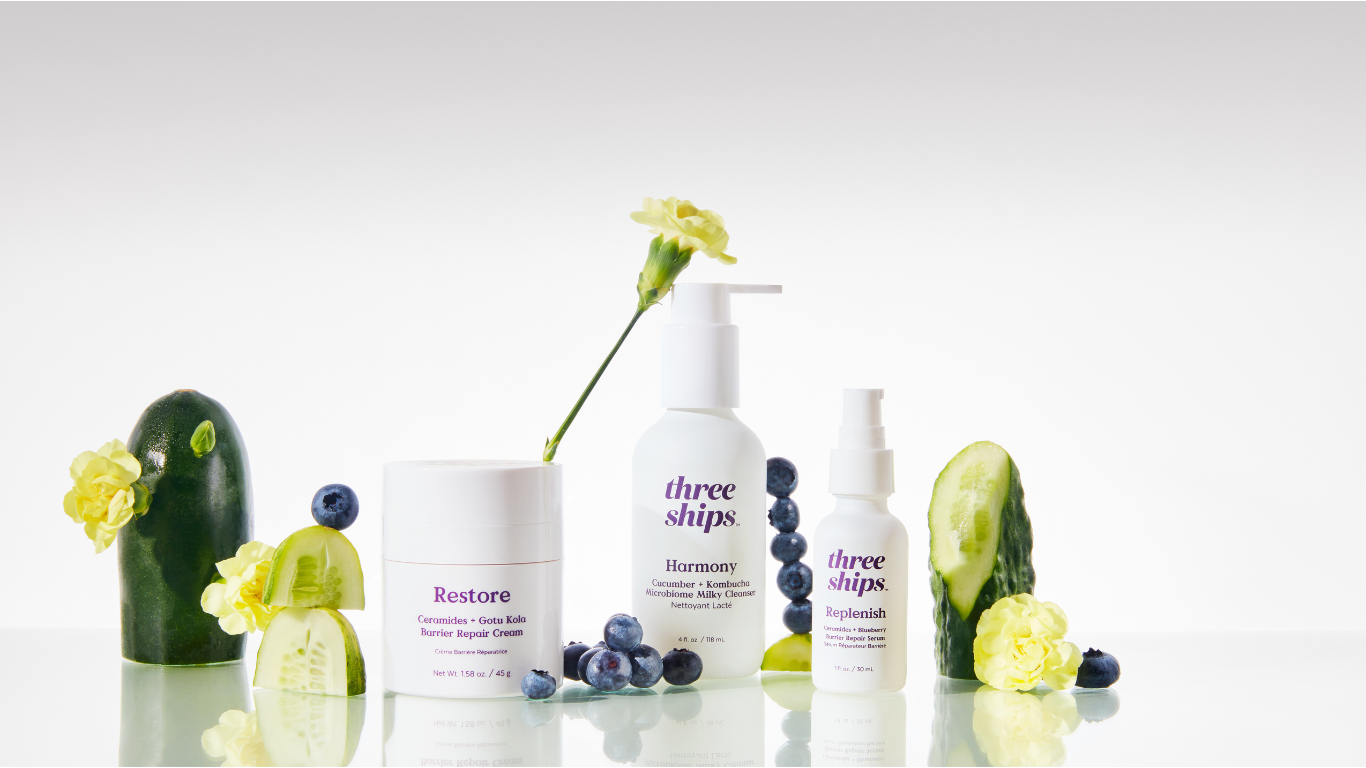Can You Use Niacinamide and Vitamin C For Skincare?

Niacinamide and vitamin C are two popular ingredients in the world of skincare. While they each have their own wide variety of benefits for your skin’s health and wellness, what happens when you combine them?
Let’s take a look at how niacinamide and vitamin C can unlock some next-level benefits to making your skin glow like never before.
What Is Niacinamide?
Niacinamide is a form of vitamin B3 used to support heart, brain, and kidney function.
Niacinamide and niacin may sound similar, but they are two different forms of B3, each with their own unique benefits, so it is important to make sure you get the right one for your skin health. Follow a patch test for those with sensitive skin and see how your skin reacts to niacinamide.
Using niacinamide on your skin can have some fantastic benefits for your skin health and is used to help with discoloration and could help with decreasing sebum production.
What Are the Benefits of Niacinamide?
Niacinamide can pack a punch when it comes to your skincare routine. In fact, niacinamide can help build proteins in the skin and lock in moisture. But that’s not all!
Here are some of the benefits of niacinamide:
Strengthens Skin Barrier
Niacinamide helps build up your skin’s lipid barrier, which is essentially healthy fatty acids that protect your skin from environmental pollutants, sun damage, and toxins.
In addition, niacinamide helps your skin to maintain healthy keratin levels. It can help promote healthy skin cell turnover, which enhances the firmness of your skin, and supports your skin’s integrity.
Improves Skin Texture
Niacinamide can be beneficial for increasing your skin’s natural collagen production, which is a special type of protein that helps to thicken your skin and reduce the appearance of bumps and impurities.
Niacinamide also helps promote soft, supple-looking skin, which can help minimize the appearance of pores associated with dry, uneven skin texture.
Hydrates Your Skin
Remember that lipid barrier we mentioned? Your skin’s lipid barrier is also made up of ceramides, a fatty acid that helps your skin retain water and promote healthy moisture levels.
Niacinamide can be super beneficial if you are prone to dry and flaky skin, as it helps boost natural hydration and reduces the risk of dryness.
Supports Your Skin As You Age
Niacinamide may help reduce the appearance of fine lines by boosting your skin’s natural collagen and hydration levels to promote healthy, firm-looking skin and maintain healthy skin-aging.
Another benefit of niacinamide for aging skin is how it helps to minimize the appearance of sun damage.
Evens Skin Tone
Niacinamide is also super beneficial in managing hyperpigmentation and may be used to lighten the appearance of dark spots on your skin. This is done with the increased amount of collagen, which helps to promote an overall even skin tone.
Helps Support Treatment Acne
Niacinamide can also regulate natural oil production, which is helpful to those with oily or blemish-prone skin types.
When your skin becomes too dry or loses too much of its natural oils, it can often overcompensate by producing too much oil to regain hydration. Additionally, niacinamide can help reduce the risk of developing acne from excessive oil on the skin.
What Is Vitamin C?
Now that we’ve covered niacinamide, it’s time to turn our attention to the other half of this fantastic duo. Vitamin C is a water-soluble vitamin that’s found in many fruits and vegetables and can help promote immunity and a natural skin glow. Who doesn’t want that?
What Are the Benefits of Vitamin C?
Also unknown as ascorbic acid, Vitamin C is a powerhouse of benefits for your body, especially the skin. Not only is it essential for the growth, development, and repair of all body tissues, vitamin c is involved in many body functions and benefits, which include:
Improves Skin Tone
Vitamin C in skincare can help promote a naturally even skin tone by lightening any dark spots on your skin and reducing the appearance of hyperpigmentation.
In fact, vitamin C is one of the only antioxidants proven to drive collagen production, making skin appear firmer and brighter.
Additionally, vitamin C has powerful anti-inflammatory properties, which can help soothe redness and swelling often caused by skin irritants.
Protects and Strengthens Your Skin
Like niacinamide, vitamin C can help increase your skin’s natural collagen production, which can help to thicken your skin and protect it from harmful toxins and environmental factors you may encounter in your day-to-day life.
Not only that, but vitamin C serums may help to promote healthy wound healing in your skin, which can be beneficial to those experiencing acne breakouts or scarring from pimples.
Research has shown that sunscreen with vitamin C helps protect the skin from further photodamage caused by ultraviolet rays. Incorporating a high SPF sunscreen in your daily skincare routine can also help boost your skin’s protection against sun damage from UV rays and help maintain your skin’s strength that you built from regular vitamin C usage.
Antioxidant Properties
Vitamin C has some potent antioxidant properties and can help protect your skin from damage by free radicals.
Free radicals can damage your skin by accelerating premature signs of aging, including fine lines. Applying a vitamin C serum can help maintain your skin’s natural, youthful appearance.
Vitamin C can also be used interchangeably with retinol, a derivative of vitamin A with its own powerhouse of antioxidants which promotes healthy aging of the skin.
To learn more about how you can use vitamin C with retinol to up your skincare game, click here to read all about it in our blog.
Brightens Your Skin
Environmental factors, such as smoke, stress, ultraviolet radiation (UV rays), pollutants, and toxins can deteriorate your skin’s natural pigmentation and leave your skin looking dull and lackluster.
Vitamin C has been known to promote enhanced cell turnover in your skin, which helps maintain a youthful skin glow brought on by younger, fresher skin cells. Vitamin C can also help enhance your skin’s natural glow and reduce any dullness in your skin
Can I Use Niacinamide and Vitamin C Together?
Yes! While some myths suggest that these two ingredients don’t mix well together, those myths have been debunked. They are now considered outdated based on high-temperature versions of niacinamide and ascorbic acid (vitamin C).
Niacinamide and vitamin C have complimentary benefits, meaning they each have their own unique jobs in your skincare routine. Wonder if skincare ingredients can or should be combined? Don’t hesitate to ask your dermatologist about what products are safe to use on your skin.
How Can I Incorporate Niacinamide and Vitamin C Into My Skincare Routine?
This is the fun part! Utilizing niacinamide and vitamin C in your skincare routine is super easy! Nowadays, many skincare products contain one or both of these unique nutrients, and it’s just about narrowing down which one is right for you.
Our Dew Drops Mushroom Hyaluronic Acid + Vitamin C Serum is jam-packed with vitamin C and its unique benefits.
While it does not include niacinamide, our Dew Drops have some stellar complementary ingredients to vitamin C, including tremella mushrooms, Kakadu plum, and red algae extract, all of which can offer similar benefits to niacinamide, so your skin doesn’t miss out on anything!
The Bottom Line
Three Ships Beauty is all about making skincare accessible and inclusive for every type of skin.
Niacinamide and vitamin C have quite a portfolio of benefits for your skin’s health. The best part is that everybody can use these skincare superheroes, regardless of their skin type.
Sources:
- Tags: rec1:dew-drops-mushroom-hyaluronic-acid-vitamin-c-serum rec2:soothe-rosehip-vitamin-c-clay-mask Skin Education
0 comments





